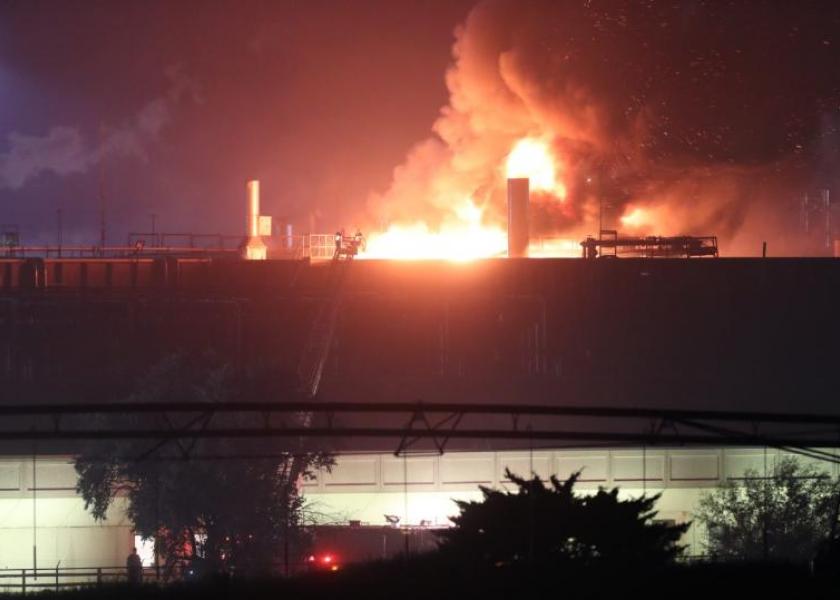Tyson Fire, Pandemic Market Report Released By USDA

USDA released Wednesday the long-awaited report on its investigation into cattle market disruptions following last year’s Tyson Foods packing plant fire and this spring’s impact from the coronavirus pandemic. The 20-page report confirmed massive volatility to both the cash and futures markets yet found no wrong-doing on the part of any industry participants.
Prepared by USDA’s Agricultural Marketing Service in coordination with the Office of the Chief Economist, summarizes market conditions, fed cattle prices, boxed beef values and the spread before and after the two market-disrupting events.
Appearing on Wednesday’s AgriTalk PM shortly after the report’s release, National Cattlemen’s Beef Association CEO Colin Woodall said the industry is glad to have the report in hand, though acknowledged it will not satisfy everyone. The report “very readily acknowledges that there are a lot of issues that we need to address – packing capacity, for example, further transparency.”
While AMS did not cite any wrong-doing, the investigations are not over, and Agriculture Secretary Sonny Perdue indicated as much in a statement.
“While we’re pleased to provide this update, we assure producers that our work continues in order to determine if there are any violations of the Packers and Stockyards Act,” Perdue said. “If any unfair practices are detected, we will take quick enforcement action.”
Issuing his own statement after the report, Iowa Senator Chuck Grassley, who has called on the Justice Department to open an investigation into the cattle markets, said, “As USDA continues to investigate market manipulation and unfair practices, today’s report lays out steps we can take to fix this marketplace. Congress has a responsibility to heed the advice of this report and take action to restore cattle price transparency when we reauthorize Livestock Mandatory Price Reporting requirements.”
Woodall said NCBA has focused on “having some minimum cash trade levels in order to have price discovery and some sort of trigger mechanism that could go along with that. I do believe that is going to be a big topic during our summer business meeting next week here in Denver.”
The Justice Department’s investigation is ongoing and Woodall said DOJ employees have been in the country “interviewing people throughout the entire beef supply chain. There’s more to come on this in terms of whether or not there’s any sort of criminal action that may have taken place.”
But the AMS report also supports the argument that while the two black swan events caused disruption and economic harm to producers, the markets reacted to those events and not to some outside intervention.
“There was nothing (in the report) to indicate any sort of market manipulation,” Woodall said. “Once we look back at this, we understand that it has had a significant impact on our industry and a significant impact on prices and is still having an impact.”
To producers who may be unhappy with the findings of AMS’ report, Woodall’s message to them is, “It’s not over. This is just one part of it. I think this is an important piece of the overall puzzle and we needed to see what USDA would find. There are a lot of individuals who believe that anything short of Packers going to jail is not going to be acceptable. But I hope that they will take the time to read what is here and understand that USDA spent a lot of time and effort to try to make sure that they get they get as much information that they can analyze, look at it from a true third party viewpoint, in order to provide the industry some of the best information we could get.”
The North American Meat Institute also released a statement about the USDA investigation into beef price margins.
“In its analysis of the effects of the fire and the pandemic, USDA found no wrong-doing and confirms the disruption in the beef markets was due to devastating and unprecedented events,” said Meat Institute President and CEO, Julie Anna Potts. “It is difficult to see how the USDA’s recommended legislative proposals would have changed the outcome of the fire or the pandemic.”
Related stories:
Updated: Fire Shutters Tyson Plant Near Garden City







